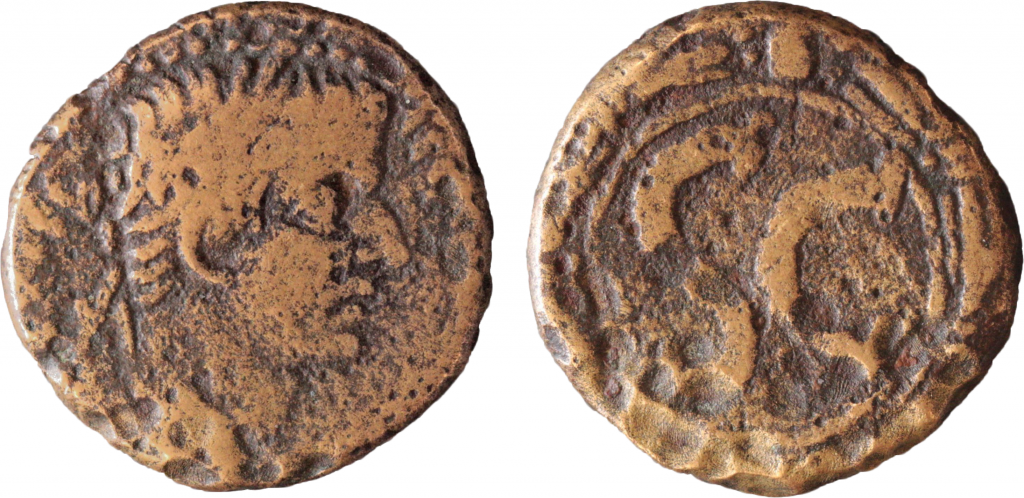March 16, 2015, by Will Leveritt
On this day in 37AD the Roman emperor Tiberius died
Text by Rebecca Batty
Image by Kelly Grimshaw and Katy Davies
Tiberius Claudius Nero (later Tiberius Julius Caesar Augustus) was Rome’s second emperor, who ruled from AD 14 until his death on this day in AD 37 at the age of 78. At the time of his death, Tiberius left the Roman Empire wealthy and stable, yet ancient writers were incredibly hostile towards him. The ancient annalist Tacitus tells of how Tiberius was a miserable and paranoid ruler who was responsible for the murder of many senators and led a life of debauchery and sexual perversion after his retirement to the island of Capri. This negative reputation is, however, probably exaggerated by ancient writers with an agenda to push.

AE24 of Tiberius, from Antioch. Obverse has laureate head r. Reverse has SC within wreath. 2mm, 14.09g, 12 o’clock.
The actual circumstances of Tiberius’ death are these. Tiberius had long retired from public life in Rome, and ruled the empire from a distance on the island of Capri. From 31 onwards, his great-nephew Caligula lived with him on the island. The young man was well-loved by the people due to the popularity of his dead father Germanicus, who had been one of the Julio-Claudian dynasty’s successful generals. While on the island with the emperor, Caligula’s mother, Agrippina the Elder, and his brothers Nero and Drusus died in exile or in prison, victims of Tiberius’ over-mighty Praetorian Prefect, Lucius Aelius Sejanus, who saw all three as a threat to his own influential position (he was also largely responsible for the treason trials which dominated the latter part of Tiberius’ reign). The treatment of his family by Tiberius and Sejanus led Caligula to come to hate the emperor, while requiring him to pretend otherwise.
In March of 37, the emperor’s health began to fail him. We are told by Tacitus that at one point on the 16th he stopped breathing and it was assumed he had died. The emperor had made little in the way of provision for the succession, save that in 35 he had written a will in which both Caligula and the emperor’s grandson Tiberius Gemellus were left as joint heirs to his estate. In addition, in 33 Caligula had been made an honorary quaestor as a means, we may suppose, to introduce him into politics. In 37 Gemellus was still a teenager and Tiberius’ limited arrangements meant that in practice Caligula would be his successor (and indeed Gemellus was done away with short after Caligula’s accession).
Perhaps especially important in this regard was the fact that Sejanus’ successor as Praetorian Prefect, Naevius Sutorius Macro, an ambitious man in his own right, had made a point of befriending Caligula. Indeed, Tacitus claims that when reports surfaced that the emperor had regained consciousness – much to the horror of Caligula, who had been preparing to assume control – Macro ordered him to be smothered. Thus Tiberius met his rather ignominious end at Misenum on 16th March, 37.
No comments yet, fill out a comment to be the first

Leave a Reply